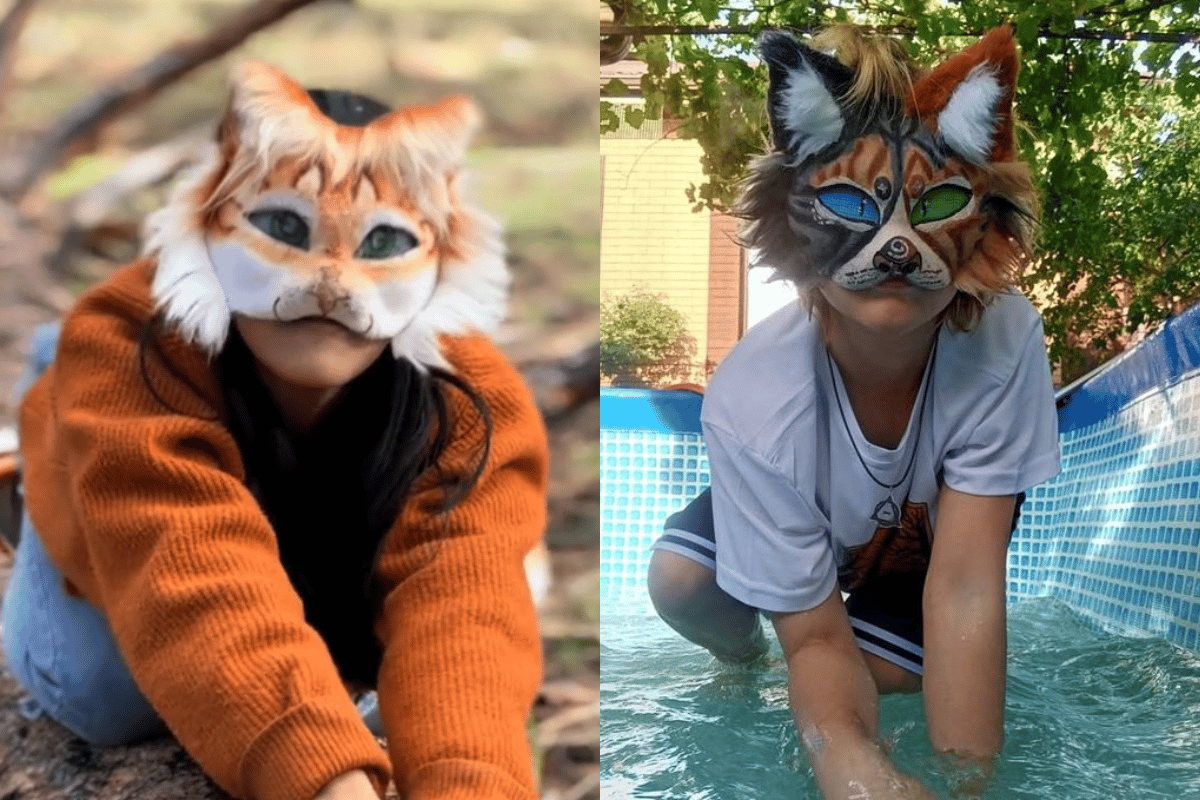
When Emma*'s daughter told her she identified as an animal, the mum was understandably surprised.
"I wondered if it was just a passing fad — something she had seen on social media and connected with," she told Mamamia.
But it was more than that. Emma's daughter explained to her mum that she's a Therian — and she's just one of a growing number of children identifying this way.
If you haven't heard the term Therian, you're not the only one. Therians are a community of people who identify as a non-human animals, either spiritually or psychologically.
And while you might be thinking, "Oh yep, I've heard of them — Furries' — no, you haven't. Because they are two different things.
While Furries have a strong interest in fictional animal characters with human traits and often dress up as animals as an outlet for creativity, fandom, and social expression, Therians view their animal identity (also known as their 'Theriotype') as part of their self-identity.
"Furries don't identify as an animal, they are people who dress up like animals with human characteristics," a Therian member of the Mamamia community commented.
"Therians identify as an animal/s spiritually and/or mentally."
Watch Therian Amber as her cat 'Theriotype'. Post continues after video.

Top Comments